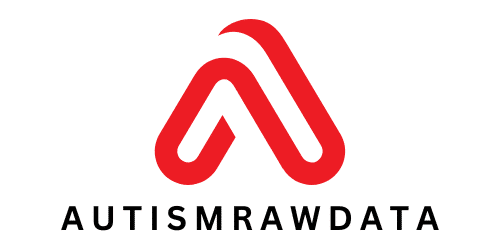Often, when you think of a Jeep Cherokee, the image that comes to mind is that of a rugged, all-terrain vehicle, tackling any obstacle with ease. But, could you possibly enhance this already impressive machine with a snorkel kit? Well, let’s dive into that.
Understanding the Purpose and Function of a Snorkel Kit
Before we delve into the impact of a snorkel kit on your Jeep Cherokee, it’s crucial to comprehend the function of a snorkel. Essentially, a snorkel is an extension of the vehicle’s air intake system, raised and rerouted to draw air from an elevated position, usually above the vehicle’s roof. This is particularly useful when the vehicle has to cross water bodies, preventing water from entering the engine which could potentially lead to severe damage.
Dans le meme genre : How to Replace the Fuel Lines in a Volkswagen Beetle for Ethanol Compatibility?
A snorkel kit works by increasing the airflow to the engine. When your Jeep faces steep inclines, the air pressure decreases. A snorkel can maintain the air pressure at a consistent level, ensuring your engine has a steady supply of air. Let’s explore this further.
How a Snorkel Kit Affects Engine Performance and Airflow
The installation of a snorkel kit on your Jeep Cherokee has a significant impact on engine performance and airflow. As the snorkel takes in air from a higher altitude, it provides the engine with cooler and denser air. Cooler air contains more oxygen, which results in the more efficient combustion of fuel, enhancing the engine’s performance.
En parallèle : How to Achieve a Showroom Shine on a Black Audi R8 Using Detailing Clay?
Moreover, the snorkel also acts as a protective barrier, preventing dust, sand, and other contaminants from entering the engine. This results in a cleaner engine, extending its lifespan and reducing the need for frequent maintenance.
Several forum posts by Jeep owners and members of the off-roading community testify to the noticeable improvement in their vehicle’s performance after installing a snorkel kit. However, the real test of a snorkel kit’s value is when the vehicle is confronted with water hazards.
Navigating Water Hazards with a Snorkel
If you’re going to take your Jeep Cherokee off-roading, chances are you’ll encounter a water crossing at some point in time. This is where a snorkel kit really proves its worth.
As water enters the air intake, it can potentially cause a hydraulic lock in the engine, leading to catastrophic damage. By relocating the air intake to a higher point, snorkels reduce the risk of water ingress into the engine during water crossings.
However, it’s essential to remember that while snorkels provide a degree of protection, they are not a guarantee against water damage. The depth of the water and the speed at which you cross will also play a significant role. To ensure your vehicle remains unscathed during a water crossing, it’s advisable to inspect the water depth and flow before proceeding.
Choosing and Installing a Snorkel Kit for Your Jeep Cherokee
If you decide to equip your Jeep Cherokee with a snorkel kit, there are a few factors you need to consider. First, ensure that the snorkel kit is designed specifically for your vehicle model. This guarantees that it fits perfectly and works optimally with your particular engine type.
Installation of the snorkel kit can be a complex process. While some adventurous Jeep owners may want to tackle it themselves, we recommend having it installed by a professional. They’ll make sure the snorkel is correctly fitted, sealed, and that the engine box is modified accordingly.
Finally, keep in mind that a snorkel kit is not a one-size-fits-all solution. For example, if you plan to undertake deep water crossings, you may also need to consider additional modifications such as installing a waterproof air box or raising other vulnerable components like the vehicle’s electronic control units.
The Verdict: Does a Snorkel Kit Improve Off-Road Capabilities?
When it comes to enhancing your Jeep Cherokee’s off-road capabilities, a snorkel kit can be a valuable addition. It improves the engine performance by maintaining consistent airflow, offers protection against dust and other contaminants, and provides a level of protection when traversing water bodies.
However, it is just one tool in the extensive off-roading toolbox. Other factors like the driver’s skill, vehicle condition, and proper preparation for the terrain will ultimately determine your Jeep’s off-road performance. As such, while a snorkel kit is an excellent addition, it should not be the sole measure taken to ensure your vehicle’s off-road readiness.
As you venture into the thrilling world of off-roading with your Jeep Cherokee, remember that each modification you make, including the installation of a snorkel kit, should be carefully considered and professionally installed. This will ensure your vehicle is equipped to conquer whatever trail you may tread.
Jeep Snorkel Kits: Various Options and Their Features
A multitude of snorkel kits are designed specifically for various Jeep Cherokee models. These kits typically include a snorkel body, usually constructed from durable and UV-stable polyethylene, an air ram that helps to separate rain or dust from the air intake, and various fixtures and fittings.
The ‘Safari Snorkel’ is one of the well-liked options in the market. It has a reputation for its durability, efficient design, and streamlined aesthetics that blend seamlessly with the Jeep’s rugged look. The air intake of the Safari Snorkel is positioned at roof level, which not only allows the vehicle to breathe clean air while navigating deep water crossings but also improves the performance in dusty conditions.
Additionally, the ‘AEV Snorkel,’ designed for Jeep Grand Cherokee, is admired for its flexibility. The system offers both a high and low air intake mount, enabling you to switch between the two based on your requirements. It also includes an Air Ram and a Pre-filter assembly.
Before making a choice, it is advisable to read various forums, gather posts likes, and observe the number of likes received for each snorkel kit. This will help you understand the kit’s performance based on the experiences of other Jeep Cherokee owners.
The Impact of a Snorkel Kit on Your Vehicle’s Insurance and Warranty
When considering a modification to your Jeep Cherokee, particularly one that involves altering the vehicle’s air intake system, it’s crucial to be aware of how this might affect your vehicle’s insurance and warranty.
Most insurers will require you to declare any modifications, including the installation of a snorkel kit. Failing to do so may result in your insurance becoming invalid in the event of a claim. While some insurers may increase your premium due to the perceived increased risk, others may view the addition of a snorkel as a protective measure that could potentially decrease your premium.
As for your vehicle’s warranty, the Magnuson-Moss Warranty Act in the U.S stipulates that a vehicle manufacturer cannot void the warranty due to an aftermarket part unless they can prove that the aftermarket part caused or contributed to the failure.
Conclusion: A Snorkel Kit – A Worthwhile Addition?
As we’ve explored, a snorkel kit can indeed enhance the off-road capabilities of a Jeep Cherokee. It optimizes engine performance, helps maintain a consistent supply of cleaner and colder air, and provides a measure of protection against water ingress during water crossings.
However, it is equally important to remember that a snorkel kit is by no means a magic fix-all for off-roading challenges. Other modifications like installing a waterproof air box or raising the vehicle’s electronic control units also play a significant role in ensuring your Jeep is ready for every off-road adventure.
Moreover, the quality of the snorkel kit, its correct installation, and your adherence to privacy policy and insurance requirements are also crucial considerations. To sum it up, while a snorkel kit is a valuable addition to your Jeep Cherokee, it should be a part of a holistic approach to enhancing your vehicle’s off-road capabilities.






